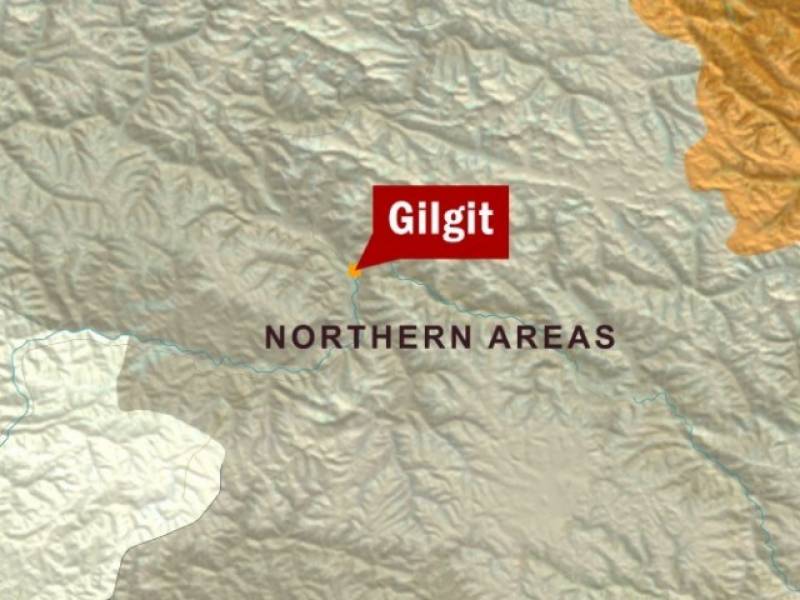The Federal Minister for Gilgit Baltistan and Kashmir Affairs, Ali Amin Gandapur held a press conference recently in which he announced on behalf of the Pakistani government that they will be holding elections for Gilgit Baltistan’s assembly in mid November 2020. With this declaration, he announced that Gilgit Baltistan will be given full provincial autonomy and will be annexed with Pakistan as its fifth province.
He promised the Gilgit public that their 73 years old deprivations will be coming to an end soon with their amalgamation to Pakistan as a fully autonomous province. Speaking from Pakistan’s front, he announced, “Better healthcare, educational, transport and tourism facilities will be made for Gilgit-Baltistan so that it can foster well as an autonomous region.”
This decision from Pakistan’s government has come face-to-face with both domestic as well as regional condemnations. The elections in Gilgit Baltistan will be conducted under the military supervision. This decision is being highly disapproved by the opposition parties. PML (N)’s prime leader; Maryam Nawaz, under the leadership of whom Pakistan Democratic Alliance was recently established, has taken this decision to denunciation. She said by criticizing, “the military has no right to decide such things in a democratically strong country. The opposition parties will boycott the elections which will be taking place in Gilgit Baltistan soon.”
On the other hand, India has carried out acute protest and objection to the decision of Pakistani government. India recently updated its maps and included Gilgit Baltistan in its Indian Occupied Kashmir (IOK) region saying that it belongs to India righteously. It has considered this move of Pakistan as a grumbling response to India’s nullification of the Articles 370 and 35A in Jammu and Kashmir. Indian Prime Minister Narendra Modi’s obstinate resolution to the nationalist and expansionist policies have made him include the Gilgit Baltistan region in IOK.
It is crucial to know why both India and Pakistan, who have already been under shades with one another since 1947 on the Kashmir issue, are now adamant on another contested region. Gilgit Baltistan is a region packed with nature’s most beautiful delicacies from its luscious green mountains and forests to breathtaking clear water lakes to being like a snow princess during winters. This has made Gilgit Baltistan the prime tourist spot for Pakistan and it is a major contributor to Pakistan’s booming economy.
According to statistics released by Pakistan Tourism Development Corporation PTDC, “tourists from around the world contributed around Rs. 300 billion to Pakistan’s economy.” It is also the major gateway for China-Pakistan Economic Corridor (CPEC) which holds vital economic and strategic importance for Pakistan’s developmental sector.
This region is equally important for India due to its proximity to the Line of Actual Control (LAC) which passes through the area of Ladakh. PM Modi claimed in his own words that, “India will not back off from its stance on Gilgit Baltistan and will use force if required whether it makes them lose the region or turn back from it.”
Now this is where things get contentious for India since it had a recent military stalemate with China at the Gulwan Valley near Ladakh on LAC in which both Indian and Chinese soldiers were killed. India, which is already at bad terms with China, can face a two-front war with the old friends Pakistan and China. India’s former Army chief and current chief of defense staff, General Bipin Rawat has warned India for a two-front war in case it doesn’t back off from Gilgit Baltistan.
Pakistan’s undying fidelity and sincerity to China has turned their relationship into that of a robust friendship. India’s latest face off with China at Ladakh and the strong Pak-China friendship can potentially lead to a war which would be disastrous to the regional stability. It can create the worst ever chaos between India and China who are both nuclear powers since the Sino-Indian war of 1962. It took them both almost 14 years to re establish the broken diplomatic ties and an additional 12 years for any Indian Prime Minister to visit Beijing.
As perilous as this situation can get for India, it can also make Pakistan’s global image to go to shambles. Pakistan has been fighting for the right to self determination and independence for the people of Kashmir, since 1947. Now this will be highly self-contradictory to the decades old stance that Pakistan has been holding for Kashmir because the will and consent of the people of Gilgit Baltistan has not been taken into account, whether they want to be annexed with Pakistan or not.
Their consensus has not been involved in the decision of holding elections for the assembly as well. The highly dominant role of Pakistan’s military establishment in the affairs of Gilgit Baltistan rather than proper democratically established actions for the region also adds up to Pakistan’s weakness in its stance on Gilgit Baltistan.
The South Asian region has been under a constant threat of a nuclear war since the partition of sub-continent. Due to the Kashmir dispute between the nuclear adversaries Pakistan and India. They have gone to three wars over this issue which has caused them massive economic and human losses. The competition between China and India, on the other hand, for the regional domination for decades has also been dangerous to the region. They also have gone to the brick of war and minor scuffles.
If Pakistan and India do not find a meditative way to resolve the Gilgit Baltistan territorial dispute, then it will not only weaken Pakistan’s Kashmir cause in front of the global community. It will wrap it over the case which Pakistan has been building from 74 years. Pakistan can go packing from every international front. It can potentially cause utter devastation for South Asia and Southern Pacific region in large. It will be making three nuclear powers go to war all at the same time which end result cannot be anything but complete devastation. Will the better sense prevail? Time will tell.

The author is doing M. Phil in Public Policy and Governance. He is working as a freelancer. Previously worked with HubPages and Washington Post.
